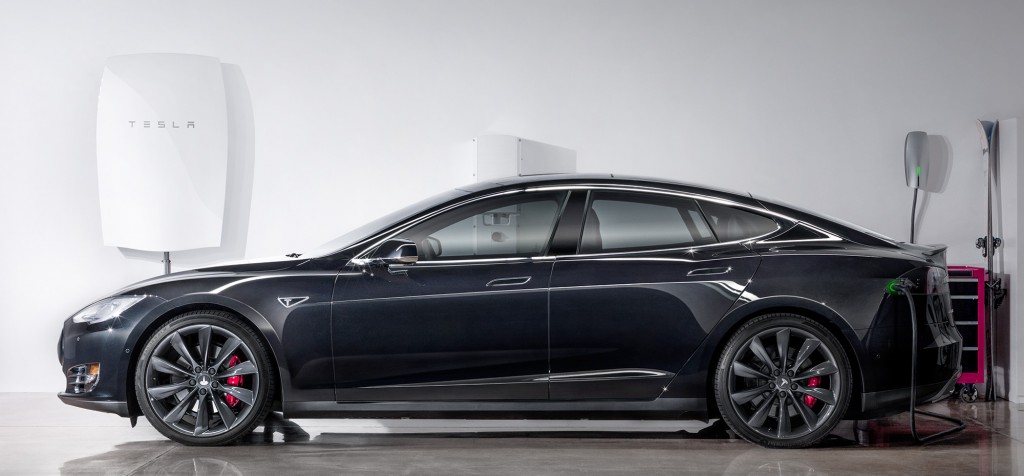The Nissan Leaf electric car doesn't compete directly with any of the luxury models from Tesla Motors, but Nissan is now targeting Tesla in a different arena.
The Japanese carmaker will offer standalone battery packs for home energy storage.
Available for pre-order in September, the xStorage line of battery packs was developed in concert with power-management company Eaton.
DON'T MISS: Tesla Didn't Invent Home Energy Storage, Has Many Competitors (May 2015)
In Europe—where the packs were designed—consumers will be able to avoid energy tariffs by connecting them to renewable-energy sources like solar panels, Nissan says.
The ability to maximize utilization of home-solar arrays is expected to be one of the main benefits of energy-storage systems.
Battery packs can store electricity for later use, meaning excess power generated by solar panels isn't wasted.

Nissan xStorage battery pack for energy storage
Each unit is powered by 12 battery "modules" from Leaf electric cars, rather than brand-new cells.
ALSO SEE: Chevy, Nissan Reveal Second-Life Uses For Electric-Car Batteries (Jun 2015)
It's another attempt by Nissan at a "second-life" use of electric-car battery packs, which still have significant energy-storage capacity even after they have degraded too much for automotive use.
Last year, Nissan announced a partnership with commercial energy-storage company Green Charge Networks to deploy used Leaf battery packs in energy storage both in the U.S. and internationally.

Tesla Powerwall Home Battery
In addition to its effectiveness when paired with renewable-energy sources, Nissan also touts xStorage as a source of emergency backup power during blackouts.
MORE: Nissan Leaf-To-Home Electric-Car Power Tests: More Practical For U.S. With Longer-Range Cars? (Oct 2014)
Nissan has some familiarity with this, as all battery-electric and hydrogen fuel-cell cars sold in its home market of Japan must have a port to discharge power and convert it from DC to AC for use in buildings.
The requirement is part of the Japanese government's "demand response" energy policy, instituted after the devastating earthquake and tsunami that hit the country in 2011.
Tesla has also said its Powerwall battery pack can be used for emergency power, although in both cases packs will likely only be able to power buildings for a short period of time.
_______________________________________________












